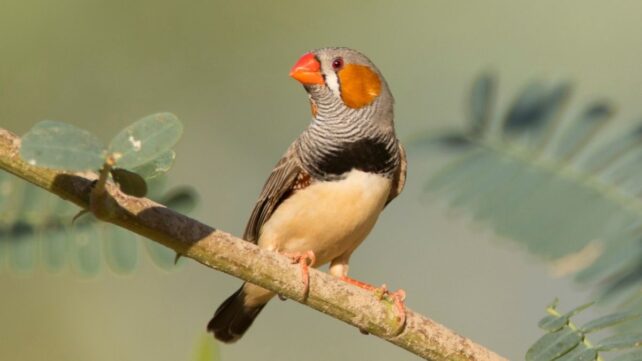Dawn is beckoned by choruses of birds all around the world, but we still don't understand why our avian neighbours insist on such a morning ruckus.
A new study, yet to be peer reviewed, explores this behavior in captive zebra finches (Taeniopygia guttata), finding that the intensity of their singing could be driven by the hours of build-up in anticipation of sunrise.
In a well-lit lab, male zebra finches spontaneously sing hundreds of songs, but in complete darkness, they utter not a single peep. This had researchers wondering how the interplay between night and day affects the dawn chorus.
Related: Scientists Discover Wild Birds Behaving Suspiciously Like Friends
When sunrise was artificially delayed by three hours by keeping the lights off for longer in experiments, the rate of the finches' singing intensified and commenced sooner compared with non-delayed sunrises, as if they were impatient for the day to begin.
Holding off on dawn's light for a few hours didn't give the birds a sleep-in: They were up at their regular time, moving around actively in the dark while suppressing their song.
Their impatience was further confirmed by offering them access to a switch that triggered 10 seconds of early light. Given this opportunity, the birds in the delayed 'dawn' setup frequently turned on the light, which is not something the birds did when dawn arrived earlier than usual.

"Birds wake up in the dark long before dawn, likely through the hormonal mechanisms associated with melatonin, and their intrinsic motivation to sing increases while spontaneous singing is being suppressed by the darkness," writes the team led by senior author and cognitive behavioral neuroscientist Satoshi Kojima of the Korea Brain Research Institute.

This kind of intense morning song may help birds warm up their vocals after an overnight rest, to quickly hone their performance and improve chances of reproductive success during the day.
"Since a vocal exercise function has been proposed for the dawn chorus in wild songbirds as well, we propose that these mechanisms and function… may be applicable, at least in part, to the dawn chorus generally observed in wild birds," the team writes.
This pre-print was posted on bioRxiv.
